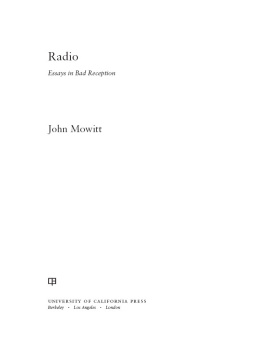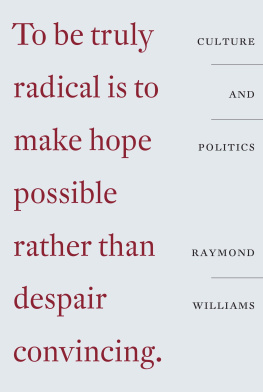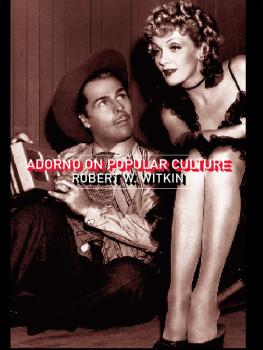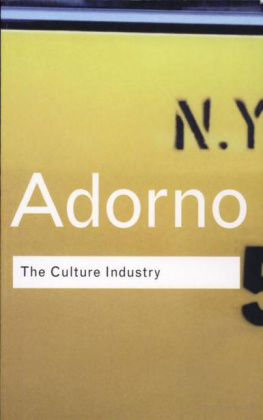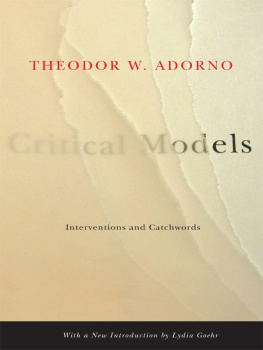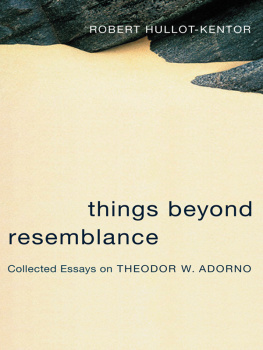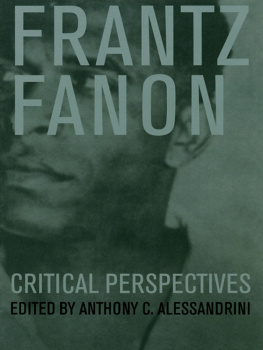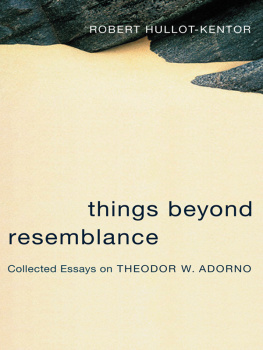Radio
Essays in Bad Reception
John Mowitt

UNIVERSITY OF CALIFORNIA PRESS
BerkeleyLos AngelesLondon
University of California Press, one of the most distinguished university presses in the United States, enriches lives around the world by advancing scholarship in the humanities, social sciences, and natural sciences. Its activities are supported by the UC Press Foundation and by philanthropic contributions from individuals and institutions. For more information, visit www.ucpress.edu.
University of California Press
Berkeley and Los Angeles, California
University of California Press, Ltd.
London, England
2011 by The Regents of the University of California
Library of Congress Cataloging-in-Publication Data
Mowitt, John, 1952.
Radio : essays in bad reception / John Mowitt.
p. cm.
Includes bibliographical references and index.
ISBN 9780520-27049-7 (cloth : alk. paper)
ISBN 9780520-27050-3 (pbk. : alk. paper)
1. Radio broadcastingPhilosophy. I. Title.
PN1991.5.M69 2011
384.54dc23
2011026053
Manufactured in the United States of America
20 19 18 17 16 15 14 13 12 11
10 9 8 7 6 5 4 3 2 1
In keeping with a commitment to support environmentally responsible and sustainable printing practices, UC Press has printed this book on 50-pound Enterprise, a 30% post-consumer-waste, recycled, deinked fiber that is processed chlorine-free. It is acid-free and meets all ANSI/NISO (Z 39.48) requirements.
We still do not have the kind of analysis of the brief moment of radio that people have so passionately undertaken for the cinema on the one hand, and television on the other; but Brechts modernismand the very modernism of his moment of history in generalis bound up with radio, and demands the acknowledgment of radios formal uniqueness as a medium, of its fundamental properties as a specific art in its own right, a form in which the antithesis of words and music no longer holds, but a new symbiosis of these two formerly separate dimensions is effectuated and rehearsed.
Fredric Jameson, Brecht and Method
Radio confuses the philosophers. What is it that I am not present for the speaker at the microphone while he is present for me? Does presence itself split itself up? This is a very serious psychological problem.
Ren Sudre, Le huitime art: Mission de la radio
Contents
Acknowledgments
Near the core of Carl Sagans Contact stands an episode, perhaps even an event, pertinent to the genre of which this is an example: acknowledgments. As those familiar with either the novel or the film will remember, the eponymous contact is discovered when the protagonist detects an electromagnetic signal repeating in what might otherwise pass as the noise of interstellar space. In time this signal is recognized as a broadcast, in fact, the televised broadcast of Leni Riefenstahls Triumph of the Will. This leads not only to the onto-theological crisis of contact itself butand Sagans shrewdness shines through hereto panicked speculations regarding intentions, speculations that quickly include the conspiratorial question of hoaxes and the like. In the end, the novel itself succumbs to this hermeneutical panic, but not before reminding us that the question of where any text comes from is of fundamental, because elusive, import.
If I emphasize this instance of scientist fiction, it is because it has long been my impression that this textRadio: Essays in Bad Receptionhas been approaching for some time. If you will, it came to me (the seeds were planted in my brain) while I was teaching a graduate seminar in the nineties at the University of Minnesota, Radio and the Politics of Mass Culture, where, among other things, I was interested in crossing the analytical pessimism so frequently ascribed to the Frankfurt School with radio as opposed to literature, film, and televisionthe more typical roster of bad objects. Or so it seems now. At the time, the students present queried me early and often about my objectives, and it seems fitting here to thank them for underscoring the flawed character of the reception that I was struggling to improve in the seminar.
In a sense, this situation has repeated itself throughout the duration of this project, but in configurations as distinctive as they are worthy of grateful acknowledgment. For the sake of exposition I will distinguish among hosts, curators, and enablers, that is, colleagues and friends who haveboth at length and in passinghelped me figure out what this text is trying to tell me.
Chief among the hosts who deserve acknowledgment are Joan Scott and her colleagues (the late) Clifford Geertz, Eric Maskin, and Michael Walser, who invited me to join the School of Social Science at the Institute for Advanced Study in Princeton for the academic year 20045. Joan in particular allowed me to recognize that the object of radio was transmitting to me from deep within the recesses of my earlier thinking on antidisciplinarity. She also brought me into association with an extraordinary group of scholars from whom this project has benefited in incalculable ways. I want to thank especially Caroline Arni, Mark Beissinger, Matteo Casini, Patricia Clough, Paulla Ebron, Duana Full-wiley, Bruce Grant, Sarah Igo, John Meyer, Kenda Mutongi, Helen Tilley, and Marek Wieczorek. Patricia, in particular, emerged as a consistently provocative interlocutor, and Carolines paleographic talents proved indispensable.
In the course of researching and writing Radio, I was invited to present it as a work in progress in various venues. I am especially grateful to the following (in the order of invitation from earliest to most recent): Negar Mottahedeh for inviting me to give one of the humanities lectures at the John Hope Franklin Center at Duke University; Tina Mai Chen for including me on her Canadian Council of Areas Studies and Learned Society panel, Culture and Globalization; Lars Iyer and Richard Middleton at Newcastle-on-Tyne University for inviting me to participate in Versions of the Popular; Barbara Engh, Eric Prenowitz, and Ashley Thompson at the University of Leeds for inviting me to address the Voice seminar; Ika Willis at Bristol University for inviting me to inaugurate the Beyond the Text lecture series; Joshua Lund for including me on the Latin American Studies Association panel After the Washington Consensus; Meredith McGill at Rutgers for inviting me to speak at Sound Effects; Donna Haraway for inviting me to present my work to her colleagues (faculty and students) at the University of California, Santa Cruz; and Martin Harries for including me on the Radio panel at the American Comparative Literature Associations annual meeting. As is customary, in several of these venues particular people took it upon themselves to respond or otherwise formally comment on my work, and I want to acknowledge and thank for their effort and insight Nicole Archer, Roman de la Campa, Patrick Madden, and Barry Parsons.
When I arrived at the Institute in September of 2004, I appeared before Joan and her colleagues with a broken left wrist from a car accident (pace Virilio). Being unable to type, that is, write (at least for me), I was hurled into the world of the archive, where I met the first in a long list of librarians, curators, and archivists without whose help this transmission would have remained unsent. I want especially to thank Momota Ganguli and Marcia Tucker, both Institute librarians; Dan Linke and Susan White, both librarians and reference specialists at the Mudd Library at Princeton University; Tara Craig, a rare books and manuscripts archivist in the Butler Library at Columbia University; Angela Carreno, a manuscript archivist at the New York Public Library; Susan Irving, a reference specialist for the John Marshall papers at the Rockefeller Foundation; Marie Walsh, a reference specialist in the Department of Sociology at the University of Birmingham; Ike Egbetola and Rod Hamilton, both archivists in the British Library for the BBC Sound Archive; Paul Spencer-Thompson, an editorial assistant at
Next page
